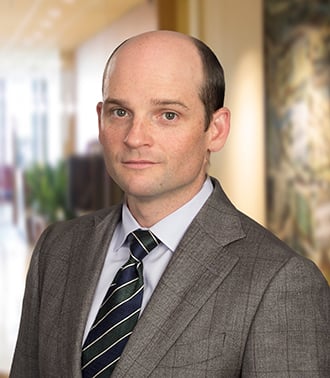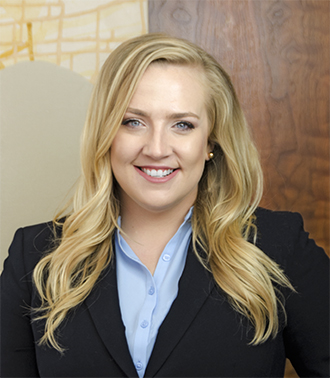Supreme Court Provides for Broader Availability of Damages in Copyright Suits
On May 9, 2024, the Supreme Court issued a 6-3 decision in Warner Chappell Music, Inc. v. Nealy, No. 22-1078, holding that damages are available under the Copyright Act for acts of infringement that predate the initiation of suit by more than three years. Specifically, the Court’s majority, penned by Justice Kagan, held that, so long as a copyright infringement suit is timely brought, the plaintiff’s damages are not limited to those accruing in the three years prior to commencement of suit under the three-year statute of limitations contained in 17 U.S.C. § 507(b). At the same time, the Court assumed for purposes of its decision — but made clear that it was not deciding — that accrual of a cause of action can be delayed by the “discovery rule” currently applied by a number of circuit courts of appeal. A dissent penned by Justice Gorsuch took issue with this approach, calling into question the validity of courts’ use of the discovery rule to extend the three-year statute of limitations, and thus whether it was provident for the Court to issue a decision at all. Thus, the Court’s decision in Warner Chappell Music both signals that plaintiffs can seek damages for actions taking place over a wider time frame, and at the same time foreshadows a future case where the Court may revisit the assumption underlying its holding.
The underlying dispute stemmed from a decades-old and short-lived music venture. In 1983, Sherman Nealy and Tony Butler formed Music Specialist, Inc., a company that recorded and released several singles, including the works at issue. After the collaboration dissolved a few years later, Nealy served two prison terms for drug-related offenses, from 1989 to 2008, and again from 2012 to 2015. Meanwhile — allegedly unbeknownst to Nealy — Butler entered into an agreement with Warner Chappell Music, Inc. to license works from the Music Specialist catalog, resulting in one work being interpolated into Flo Rida’s hit song “In the Ayer,” which sold millions of copies and reached No. 9 on the Billboard chart. Other Music Specialist songs found their way into recordings by the Black Eyed Peas and Kid Sister. In 2018, following his second prison stint, Nealy sued Warner Chappell for copyright infringement in the U.S. District Court for the Southern District of Florida, alleging he held the copyrights to Music Specialist’s songs and that Warner Chappell’s licensing activities infringed his rights. Nealy claimed the infringing activity dated back to 2008 — 10 years before he brought suit.
Given the passage of time since the commencement of the allegedly infringing conduct, Nealy had to establish that his claims were timely. Under the Copyright Act, a plaintiff must file suit “within three years after the claim accrued.” § 507(b). However, even though some of Nealy’s claims involved alleged infringements occurring as much as a decade earlier, Nealy argued that his claims were timely under the “discovery rule,” which suspends the clock for a plaintiff to file a legal claim until a plaintiff exercising reasonable diligence knows (or should have known) of the claim. Nealy urged that all his claims were timely under the “discovery rule” because he did not learn of Warner Chappell’s infringing conduct until 2016 — just after he got out of prison and less than three years before he sued. The district court held that, even if the discovery rule permitted Nealy’s claims for infringements going back 10 years, monetary relief was limited to the three years prior to the filing of the action, i.e., to the period from 2015 onward. Because the Eleventh Circuit had not considered the issue, the district court based its holding on the Second Circuit’s decision in Sohm v. Scholastic Inc., 959 F. 3d 39, 51-52 (2nd Cir. 2020), but certified this holding for interlocutory appeal.
The Court of Appeals for the Eleventh Circuit reversed, rejecting the notion of a three-year damages bar on an otherwise timely claim. The Eleventh Circuit recognized that its sister circuits were divided on this issue. For example, in Sohm v. Scholastic, Inc., relied on by the district court, the Second Circuit held that the plaintiff’s recovery, even under the discovery rule, is limited to damages incurred during the three years prior to filing suit. However, the Ninth Circuit in Starz Entertainment v. MGM, 39 F. 4th 1236, 1244 (9th Cir. 2022), disagreed with the Second Circuit, observing that an absolute three-year bar on damages “would eviscerate the discovery rule.” The Eleventh Circuit allied itself with the Ninth Circuit rather than the Second Circuit, holding that a plaintiff with a timely claim under the discovery rule may obtain “retrospective relief for [an] infringement” even if it “occur[ed] more than three years before the lawsuit’s filing[,]” and held that — under the assumption that all of Nealy’s claims were timely brought under the discovery rule — he could recover full damages reaching back to 2008. The Eleventh Circuit also held that the text of the Copyright Act does not support the existence of a separate damages bar for a timely copyright claim.
Warner subsequently filed a petition for writ of certiorari. The Supreme Court granted the petition limited to the following question: Whether, under the discovery accrual rule applied by the circuit courts and the Copyright Act’s statute of limitations for civil actions, 17 U.S.C. § 507(b), a copyright plaintiff can recover damages for acts that allegedly occurred more than three years before the filing of a lawsuit.
In a majority opinion authored by Justice Elena Kagan, the Supreme Court confirmed the Ninth and Eleventh Circuits’ interpretations of the Copyright Act. Noting that the Copyright Act includes a time limitation for filing a claim but contains no such restriction in its remedies section (17 U.S.C. § 504), the Court concluded that there “is no time limit on monetary recovery.” In other words, “a copyright owner possessing a timely claim for infringement is entitled to damages, no matter when the infringement occurred.” The Court noted that to hold otherwise would “gut” or “silently eliminate” the discovery rule by preventing the recovery of damages for older infringements. The Court further clarified its prior statements in Petrella v. Metro-Goldwyn-Mayer, 572 U. S. 663 (2014), which some courts had interpreted as imposing a three-year limit on retrospective relief. Justice Kagan explained that in Petrella, the Court “merely described how the limitations provision worked” in situations where a plaintiff could not avail herself of the discovery rule, “[b]ut we did not go beyond [Petrella]’s facts to say that even if the limitations provision allows for an earlier infringement, the plaintiff may not obtain monetary relief.” Justice Kagan’s majority opinion was joined by Chief Justice Roberts, as well as Justices Sotomayor, Kavanaugh, Barrett, and Jackson.
Justice Gorsuch penned a dissenting opinion, joined by Justices Thomas and Alito, arguing that the Court should have first determined whether the Copyright Act permits use of the discovery rule at all. Justice Gorsuch asserted that the Act “almost certainly does not tolerate a discovery rule” and that the majority’s decision “promises soon enough to make anything we might say today about the rule’s operational details a dead letter.” Here, the dissenting Justices noted that “consistent with traditional equitable practice,” the Court would “ordinarily apply the discovery rule only in cases of fraud or concealment.” The dissenting opinion found “little reason” to believe that the Copyright Act foresaw application of the discovery rule in a case such as this, “or, indeed, in the mine run of copyright cases.” Justice Gorsuch recognized that the issue of whether the discovery rule applies at all had not been fully briefed; he thus would have “dismissed it as improvidently granted and awaited another [case] squarely presenting the question whether the Copyright Act authorizes the discovery rule.”
The Court’s decision in Warner Chappell provides assurance that parties timely asserting copyright infringement claims more than three years old may recover damages for the entirety of the infringement, but leaves open fundamental questions regarding the validity of the discovery rule itself. The majority carefully emphasized the assumption that the discovery rule governed the timeliness of copyright claims, but acknowledged that the Court has “never decided whether that assumption is valid.” The Court purposely avoided this question by limiting the issue presented on certiorari, and the Court commented in a footnote that it would not consider Warner Chappell Music’s extensive arguments on the issue. While copyright holders are likely to benefit from this decision in the short-term, the ultimate fate of the discovery rule for copyright claims remains uncertain. The dissent’s use of strong language indicating that copyright law “almost certainly” does not authorize a discovery accrual rule may make room for the Court to take a case in the future that squarely raises the validity of the discovery rule.
© Arnold & Porter Kaye Scholer LLP 2024 All Rights Reserved. This Advisory is intended to be a general summary of the law and does not constitute legal advice. You should consult with counsel to determine applicable legal requirements in a specific fact situation.


